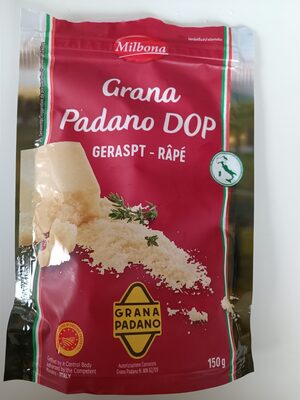
Barcode: 4056489043164
Grana Padano
HARAM
📝 Reason: The product contains animal rennet, which is Haram without Halal certification. Lysozyme’s source is not specified, making it Doubtful. Islamic dietary laws prohibit consumption of Haram substances.
📄 Certificates: None
Ingredients:
Details
Understanding the Halal Status of Grana Padano
Grana Padano, a revered Italian cheese known for its rich flavor and versatility in culinary applications, has stirred discussions regarding its halal status. For those adhering to Islamic dietary laws, understanding whether this product is permissible to consume is crucial. In this post, we will delve into the ingredients of Grana Padano, examine their halal status, and clarify why the product is deemed Haram or doubtful.
Ingredients Breakdown
Grana Padano consists of the following ingredients: raw milk, table salt, animal rennet, and lysozyme. Each of these components has a distinct status under Islamic dietary laws:
- Raw Milk: This ingredient is derived from cows. While cow milk is generally considered Halal if derived from animals slaughtered in accordance with Islamic law, without a Halal certification, it falls under the category of doubtful, creating uncertainty about its permissibility.
- Table Salt: Commonly used in food, table salt is a mineral substance and is widely accepted as Halal. Therefore, it poses no concerns for consumers adhering to halal guidelines.
- Animal Rennet: This ingredient is critical in the cheese-making process. It is extracted from the stomachs of young calves, lambs, or goats. Unfortunately, without Halal certification, animal rennet is categorized as Haram, making Grana Padano non-compliant for Muslims.
- Lysozyme (E1105): This enzyme can be derived from two primary sources: egg whites (which are Halal) or microbial sources (potentially Halal if they are produced without Haram substances). The absence of specific source information renders this ingredient as doubtful for halal consumers.
Why Grana Padano is Considered Haram
The primary reason Grana Padano is marked as Haram is due to the presence of animal rennet. As per Islamic dietary laws, any food item containing components derived from animals that have not been slaughtered in accordance with these laws is considered impermissible. Thus, without a clear halal certification, Grana Padano cannot be safely consumed by Muslims.
Islamic Dietary Laws and Certification
Islam emphasizes the significance of consuming Halal certified products, ensuring that food adheres to stringent guidelines set forth in the Quran and Hadith. A halal certification guarantees that every ingredient in a product is sourced and processed according to Islamic law, alleviating concerns for consumers. In the case of Grana Padano, the lack of any Halal certification raises significant doubts about its permissibility for Muslim consumers.
Conclusion
In summary, Grana Padano presents challenges for halal consumers due to its ingredients. The presence of animal rennet without Halal certification categorizes this product as Haram. Additionally, the uncertainty surrounding the source of lysozyme adds to the doubts surrounding its halal status. Therefore, Muslim consumers are advised to avoid Grana Padano and opt for alternatives that ensure adherence to halal guidelines.
When selecting food items, always look for authentic Halal certification, particularly in products like cheese, where the processing methods can significantly affect its permissibility.

